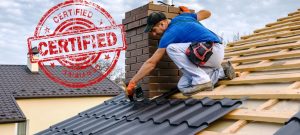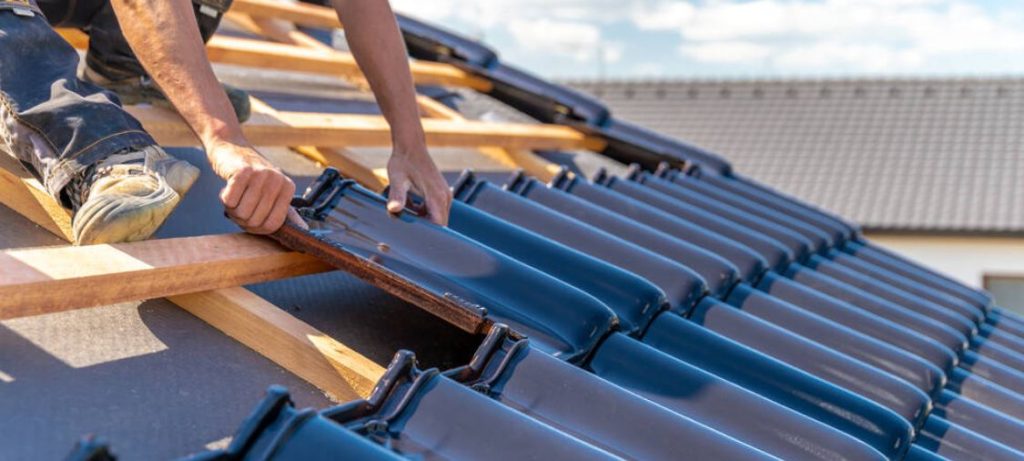
When it comes to roofing projects, protecting yourself from liability risks is a top priority. Accidents, property damage, or legal disputes can quickly turn a routine repair or replacement into a costly and stressful ordeal. This is where the value of hiring a certified roofing company becomes evident.
Certified roofing companies not only deliver high-quality workmanship but also provide critical safeguards that protect homeowners from potential legal and financial liabilities. In this guide, we’ll explore the common risks associated with roofing projects and how choosing a certified roofing company can offer you the peace of mind and protection you need.
Understanding Liability Risks in Roofing Projects
Understanding liability risks in roofing projects is crucial for protecting your property and ensuring a smooth construction process. Certified roofing companies offer comprehensive warranties and waterproofing solutions to mitigate potential risks. We explore the liability risks to homeowners, workers, and third parties involved in roofing projects, highlighting the importance of proper insurance coverage and adherence to privacy policies.
Risks to Homeowners
As a homeowner, you face several liability risks during roofing projects. Your home insurance may not cover damages caused by poor workmanship or accidents during construction. To protect yourself, ensure your roofing contractor conducts a thorough inspection before and after the project, documenting all findings in a detailed blog for customer satisfaction and future reference.
Manufacturing defects in roofing materials can lead to premature failure, potentially voiding warranties and leaving you financially responsible for repairs. Choose certified roofing companies that use high-quality materials and offer comprehensive warranties. These professionals understand the importance of proper installation and can help safeguard your investment while ensuring your peace of mind.
Risks to Workers and Third Parties
Roofing projects pose significant risks to workers and third parties. As a property owner, you must ensure your roofing contractor carries adequate liability insurance to protect you from potential lawsuits. This coverage should extend to accidents involving workers or passersby, as stipulated in the terms of service.
Certified roofing companies prioritize worker safety and customer privacy. They implement strict safety protocols, use proper equipment, and train their staff to minimize risks. By choosing a reputable contractor, you protect yourself and others while ensuring all rights are reserved for both parties involved in the project.
The Role of Certification in Roofing Companies
Certification plays a crucial role in protecting you from liability risks when hiring a roofing company. Certified roofers undergo rigorous training and assessments, ensuring they possess the necessary skills for quality home improvement projects.
Reputable certifications, such as those from Owens Corning, indicate a company’s commitment to excellence in metal and other roofing materials. These certifications validate a roofer’s expertise and adherence to industry standards, reducing the likelihood of errors that could lead to liability issues.
Certified roofing companies often provide better employment practices, including comprehensive worker training and safety protocols. This focus on employee development minimizes the risk of accidents and potential liability claims during your roofing project.
By choosing a certified roofing company, you gain access to extended warranties and guaranteed workmanship. These additional protections safeguard your investment and provide recourse in case of unforeseen issues, further reducing your liability exposure.
Key Ways Certified Roofing Companies Protect Homeowners

Certified roofing companies protect you from liability risks through comprehensive insurance coverage, clear contracts, and strict adherence to safety standards. These key elements of roofing services ensure your project is handled professionally, minimizing potential risks. Let’s explore how certified roofing contractors safeguard your interests throughout the roof system installation process.
Comprehensive Insurance Coverage
Certified roofing companies protect you from liability risks by maintaining comprehensive insurance coverage. As a homeowner, you benefit from their general liability insurance, which safeguards you against potential damages or injuries that may occur during residential roofing services. GAF Master Elite contractors and other reputable roofing professionals often carry higher coverage limits, providing you with extra protection.
When hiring roofing companies for roof repair services, ask for proof of insurance and verify its validity. This step ensures you’re working with properly insured roofing professionals, reducing your personal liability exposure. Remember, comprehensive insurance coverage extends beyond the construction phase, protecting you from unforeseen issues that may arise after project completion.
Clear Contracts
Clear contracts are essential when hiring a roofing company for your residential or commercial roofing services. A reputable roofing contractor will provide you with a detailed agreement outlining the scope of work, materials to be used, and expected timeline for roof repairs or installations. This transparency protects you from potential misunderstandings and liability issues that could arise during the project.
Your contract with the roofing company should also clearly state the warranty terms and any limitations on liability. For commercial roofing services, ensure the agreement addresses specific requirements unique to your business property. By having a comprehensive contract in place, you establish a legal framework that safeguards your interests and defines the responsibilities of all parties involved in the roofing project.
Adherence to Safety Standards
Certified roofing companies protect you from liability risks by strictly adhering to safety standards during roof repair and installation. Licensed roofers follow industry-approved protocols for working at heights, handling materials, and operating equipment. This commitment to safety reduces the likelihood of accidents on your property, shielding you from potential legal issues.
When you hire a reputable LLC for roofing systems, you benefit from their comprehensive safety training programs. These roofers are well-versed in OSHA regulations and employ best practices to ensure the safety of their workers and your property. By prioritizing safety, certified roofing companies minimize the risk of injuries or damages that could lead to liability claims against you as the property owner.
Certified vs. Non-Certified Roofing Companies: A Comparison
When choosing between certified and non-certified roofing companies for your residential roofing project, consider the differences in liability protection. Certified roofers often carry more comprehensive insurance coverage, reducing your risk exposure during roof installation.
Certified roofing contractors undergo rigorous training and adhere to strict industry standards, ensuring higher quality workmanship. This expertise translates to fewer errors and potential liability issues compared to non-certified counterparts.
GAF certified roofers offer enhanced warranties that protect you from material defects and installation errors. These extended guarantees provide additional peace of mind and financial protection that non-certified roofers typically cannot match.
While non-certified roofers may offer lower prices, certified roofing companies provide greater value through their commitment to safety, quality, and customer protection. By choosing certified contractors, you minimize liability risks associated with your roofing project.
How to Verify a Roofing Company’s Certification
Verifying a roofing company’s certification is crucial for protecting yourself from liability risks. Learn how to research certified roofers near you, including Owens Corning certified roofers and GAF Master Elite certified contractors. Discover the key credentials to look for when selecting a licensed roofer, ensuring you choose a reputable professional for your roofing project.
Key Credentials to Look For
When verifying a roofing company’s certification, look for a valid license from your state’s licensing board. This ensures the contractor meets the general requirements to perform roofing work legally. Additionally, check for manufacturer certifications, such as CertainTeed or GAF, which indicate the roofer’s expertise in installing specific products.
Consider the roofing company’s investment in ongoing education and training. Certified contractors often participate in continuous learning programs to stay updated on industry best practices. These credentials demonstrate a commitment to quality workmanship and can provide you with greater protection against liability risks associated with your roofing project.
Research about the roofing company
When researching a roofing company, start by examining their track record of successful roof inspections and completed projects. Look for reviews from previous clients in your area, such as Wilkes Barre, to gauge their reputation and reliability. Pay attention to comments about the company’s professionalism, adherence to timelines, and quality of work during roofing projects.
Visit the roofing company’s website to review their portfolio and check for any copyright notices, which can indicate a legitimate, established business. Look for information about their certifications, years of experience, and specializations in different types of roofing projects. Contact them directly to inquire about their licensing, insurance coverage, and warranty offerings to ensure you’re protected throughout your roofing project.
Conclusion
Certified roofing companies provide crucial protection against liability risks through comprehensive insurance coverage, clear contracts, and strict adherence to safety standards. Their certifications and ongoing training ensure high-quality workmanship, reducing the likelihood of errors and potential legal issues. By choosing a certified roofer, homeowners gain access to extended warranties, expert installations, and peace of mind throughout their roofing projects. Verifying a roofing company’s credentials and researching their track record are essential steps in safeguarding your property and financial interests during roof repairs or installations.
